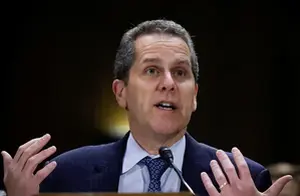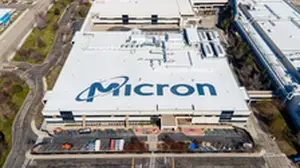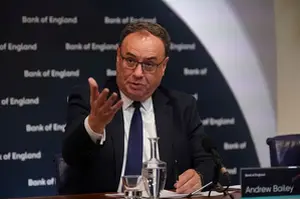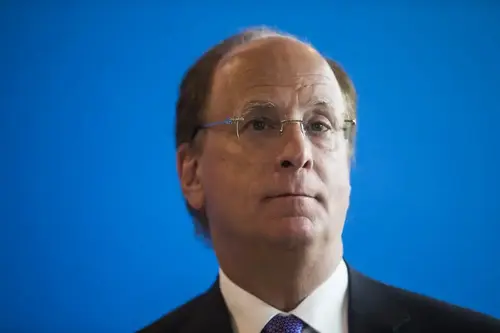
Larry Fink: BlackRock is not the 'environmental police'
Asset managers like BlackRock are not "the environmental police," Larry Fink said in his annual chairman's letter to investors, which was published on Wednesday.
"As I have said consistently over many years now, it is for governments to make policy and enact legislation, and not for companies, including asset managers, to be the environmental police," Fink wrote.
But BlackRock takes its role as a fiduciary for clients incredibly seriously, the letter makes clear. Doing that job well requires BlackRock to monitor the risk climate change poses to financial assets.
"Investing for the long term requires taking a long-term view of what will impact returns, including demographics, government policy, technological advancements, and the transition to a low-carbon economy," Fink wrote.
"For years now, we have viewed climate risk as an investment risk. That's still the case," Fink said.
Fink has become a target for Republican lawmakers who view environmental, social, and governance (ESG) investing as a proxy for financiers impressing their political viewpoints.
For instance, in Aug. 2022, Texas Comptroller Glenn Hegar targeted BlackRock, putting the asset manager on a list of financial companies that "boycott energy companies."
'Anyone can see the impact'
In his annual letter, Fink highlighted the ways that climate change is already impacting financial markets and the economy.
"Anyone can see the impact of climate change in the natural disasters in California or Florida, in Pakistan, across Europe and Australia, and in many other places around the world. There's more flooding, more wildfires, and more intense storms. In fact, it's hard to find a part of our ecology – or our economy – that's not affected," Fink wrote. "Finance is not immune to these changes. We're already seeing rising insurance costs in response to shifting weather patterns."
Natural disasters cost the insurance giant Munich Re $120 billion in 2022, which Fink called "a once unthinkable figure."
The federal government's National Flood Insurance Program, which underwrites many insurance policies in Florida, is $20.5 billion in debt and has had to borrow money from the U.S. Treasury, Fink said.
Blackrock has customers who want to invest in the energy transition and others who do not, Fink said, and Blackrock serves both types. But if clients want to understand how climate risk will affect their investments, Blackrock will provide that information.
I wrote last year that the next 1,000 unicorns won't be search engines or social media companies. Many of them will be sustainable, scalable innovators – startups that help the world decarbonize and make the energy transition affordable for all consumers. I still believe that.Larry FinkCEO of Blackrock
"It is not the role of an asset manager like BlackRock to engineer a particular outcome in the economy, and we don't know the ultimate path and timing of the transition. Government policy, technological innovation, and consumer preferences will ultimately determine the pace and scale of decarbonization," Fink wrote. "Our job is to think through and model different scenarios to understand implications for our clients' portfolios."
That is why Fink has pushed for climate risk disclosures at companies. More than half of the S&P 500 voluntarily report their own Scope 1 and 2 emissions, Fink said.
Scope 1 emissions are those greenhouse gasses that come from assets that are owned or controlled by an organization, such as boilers, furnaces or vehicles, according to the U.S Environmental Protection Agency. Scope 2 emissions are the greenhouse gas emissions that are associated with the electricity, steam, heat or cooling that an organization uses.
Scope 3 emissions, which are much harder to track, are emissions resulting from the assets in an organization's supply chain.
While Fink advocates the importance of measuring climate risk in business, he also says oil and gas are necessary to meet energy needs in the short-term. BlackRock is investing in natural gas pipelines, with efforts made to mitigate methane emissions from those natural gas pipelines, Fink said.
At the same time, BlackRock is providing options for investors to invest in clean tech, such as carbon capture storage pipelines and technology that turns waste into natural gas, he said.
"I wrote last year that the next 1,000 unicorns won't be search engines or social media companies. Many of them will be sustainable, scalable innovators – startups that help the world decarbonize and make the energy transition affordable for all consumers. I still believe that," Fink writes. "For clients who choose, we're connecting them with these investment opportunities."
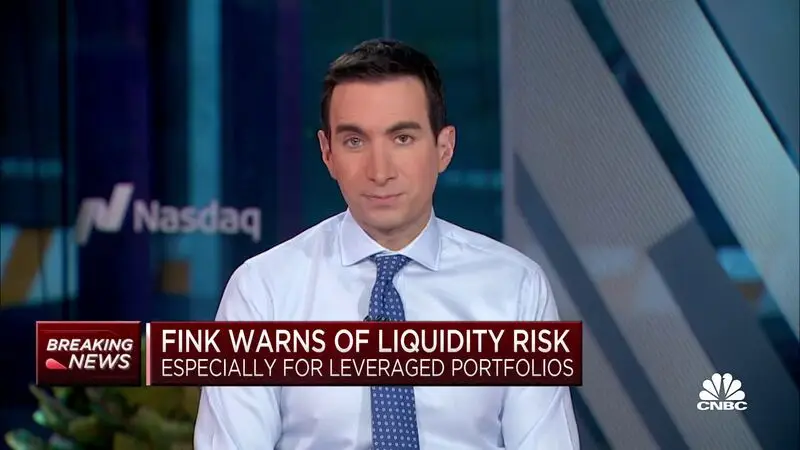
Source: https://www.cnbc.com/2023/03/15/larry-fink-blackrock-is-not-the-environmental-police-.html
